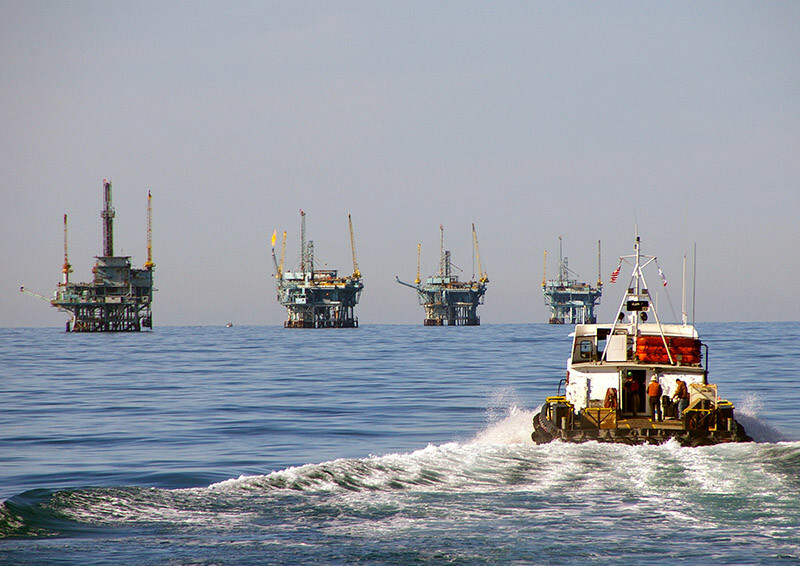The relationship between U.S. energy production and national parks, forests and wildlife refuges is the focus of a newly launched website, Royalties to Restoration.
In 2021, oil and gas companies operating in U.S. offshore waters paid more than $3 billion to the federal treasury. In 2022, a total of $2.8 billion has been set aside for the restoration of national parks, forests and wildlife refuges, the vast majority located in the country’s western states. These projects are funded solely from offshore revenue paid to the federal treasury.
In April 2022, the U.S. Department of Agriculture and the Interior Department announced their proposed fiscal year 2023 allocations of $2.8 billion in projects, grants and programs authorized in the Great American Outdoors Act to support local economies, outdoor recreation, access to public lands and voluntary national conservation efforts in every U.S. state.
“Simply put, America’s signature outdoor experiences are enhanced by offshore oil and gas royalties. Succinctly put, its ‘Royalties to Restoration,’ ” Scott Angelle, founder of the new website and former director of the Bureau of Safety and Environmental Enforcement (BSEE), said in a prepared statement. “U.S. energy production and the conservation of our natural resources have a vital connection, not widely known. That connection advances efforts in Balancing the 3Es – environment, energy and economy.”
The website features the contributions of U.S. offshore energy. Domestic energy production not only fuels our vehicles, homes and industries with affordable prices, but also our conservation efforts through the federal leasing program. Domestic production also reduces our dependence on OPEC+ and imported oil, which improves the health of our planet, creates domestic jobs and makes energy more affordable for all Americans.
Payments from U.S. offshore energy to the U.S. Department of the Treasury are the sole funding source for federal programs like the Land and Water Conservation Fund, the Gulf of Mexico Security Act and the Great American Outdoors Act — the latter which was enacted in 2020 as a bipartisan effort, with Congressional members coming together from both sides of the aisle.
Available on the website is information on yearly funding for projects, grants and programs authorized in the Great American Outdoors Act to support local economies, outdoor recreation, access to public lands and voluntary national conservation efforts in every U.S. state. Also, reports regarding the environmentally advantaged benefits offered through U.S. offshore energy production are accessible on the website.
The Royalties to Restoration initiative includes website partners who understand the value of Gulf of Mexico energy production including all the benefits it provides from funding conservation efforts to protecting Mother Earth through actively balancing the 3Es – environment, energy and economy.
The website partners include: Consumer Energy Alliance, Houma-Terrebonne Chamber of Commerce, Louisiana Association of Business and Industry (LABI), National Ocean Industries Association (NOIA), One Acadiana, Parishes Advocating for Coastal Endurance (PACE), Police Jury Association of Louisiana, Port of Delcambre — Twin Parish Port District, Port Fourchon, St. Mary Economic Development, USA Energy Workers, and the West Baton Rouge Chamber of Commerce.
From a global perspective, the Gulf contributes in a meaningful way to the fight for our planet’s climate health by providing a viable source of energy at lower emissions than global competitors. Recent research regarding carbon emissions reveals that Gulf production has approximately half the carbon intensity per barrel of other producing regions worldwide. When it comes to flared or vented methane, the Gulf has consistently been one of the best performing provinces in the world.
Furthermore, according to a 2020 Wood Mackenzie report, at least 73.4% of the oil imported to the U.S. had a higher carbon intensity than Gulf of Mexico production. This data bolsters conclusions in a 2016 Bureau of Ocean Energy Management report, produced under the Obama-Biden Administration, that found emissions would increase without new Gulf lease sales because foreign-produced oil would take its place, and “the production and transport of that foreign oil would emit more” greenhouse gases.
For the continued support and funding of the important conservation efforts for national parks, forests and wildlife refuges, a consistent and continued leasing program is a necessity. After a lapse in 5-Year Leasing Programs, the U.S. Department of Interior is working on a new program to cover 2023-2028. The Department is accepting comments through Oct. 6, 2022.
Royalties to Restoration began connecting “coastal warriors” with stakeholders, more commonly referred to as “buddies,” across the U.S. to help educate and engage all Americans on the importance of offshore energy, the Gulf of Mexico and conservation, protection, restoration and recreation projects across the U.S.



